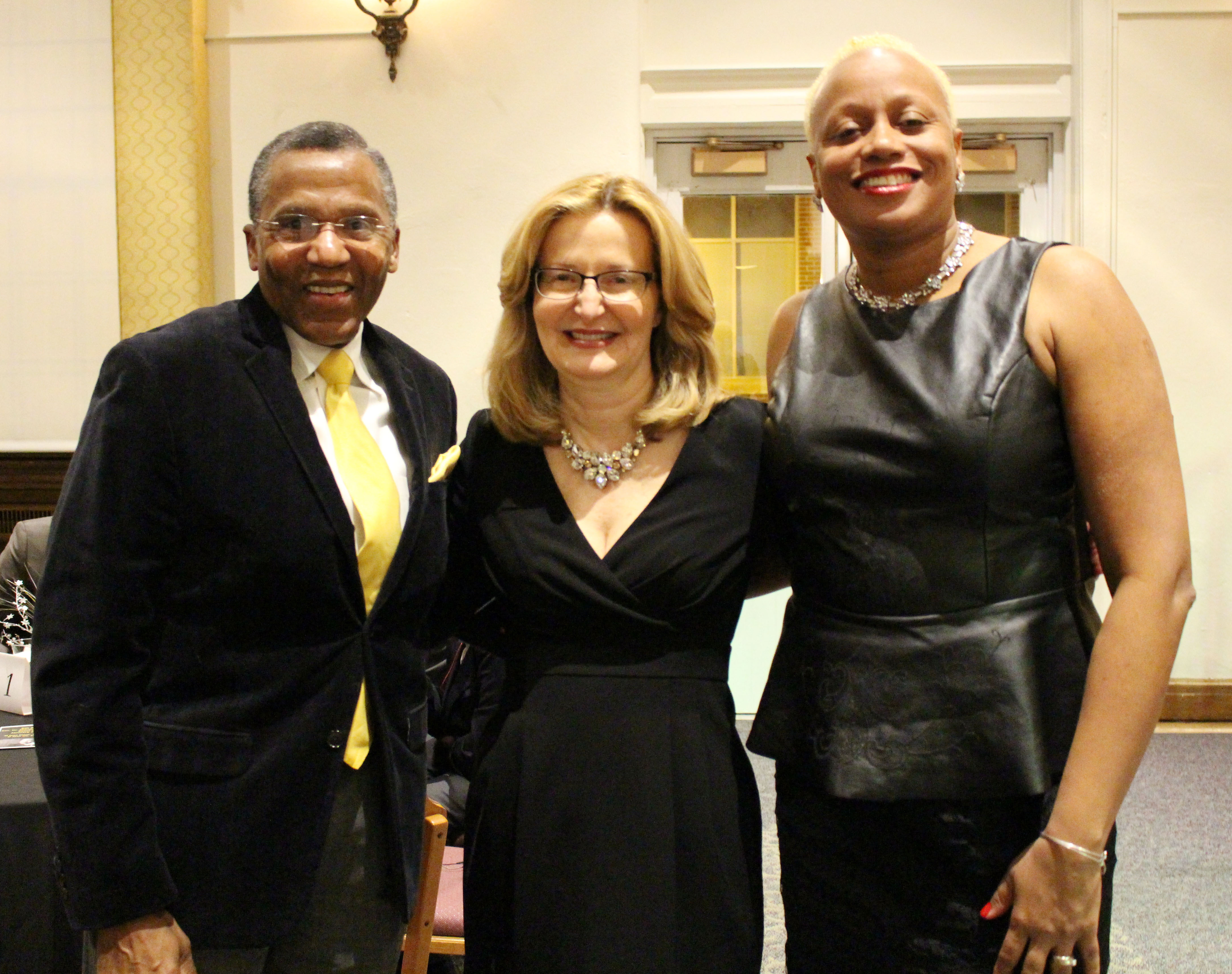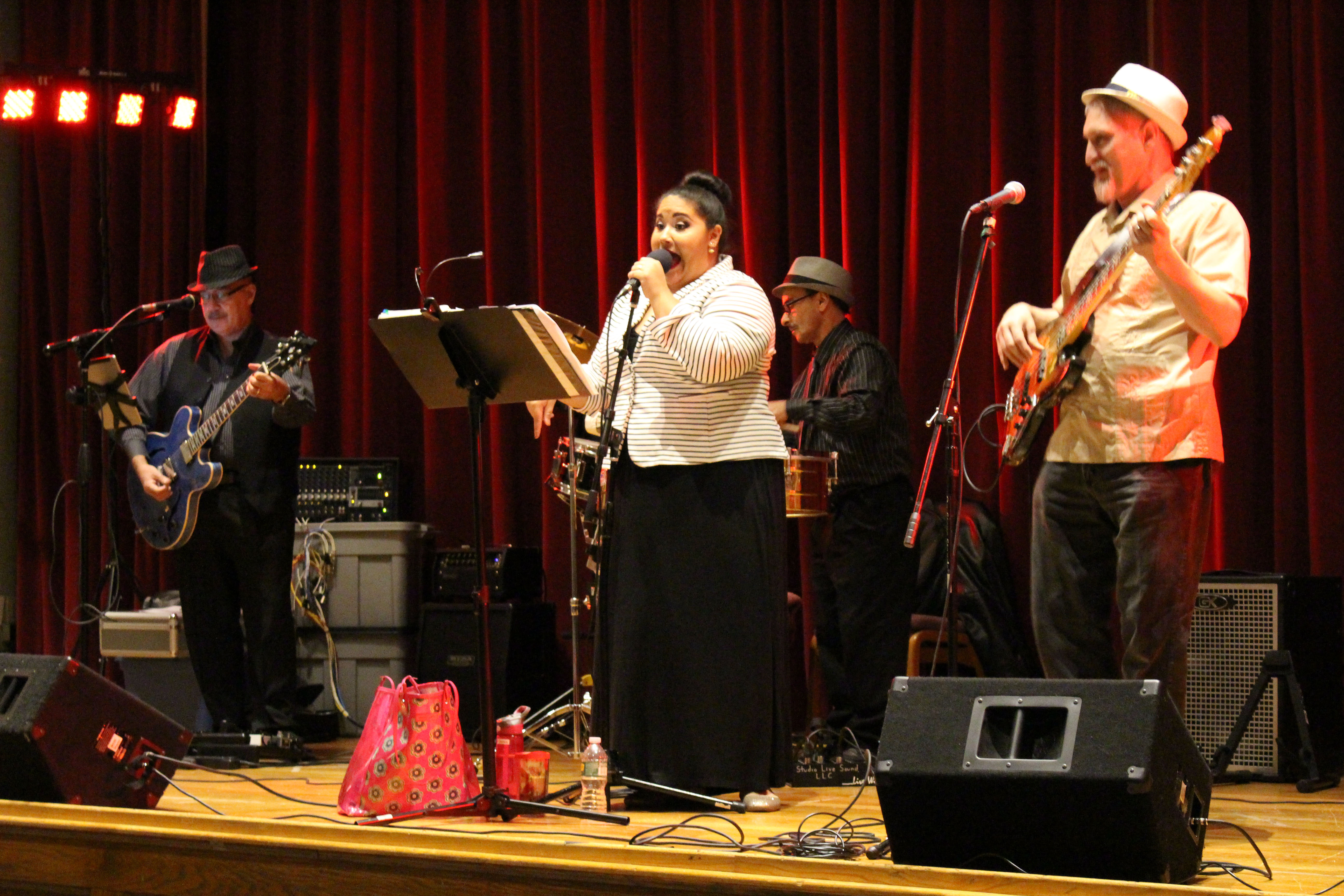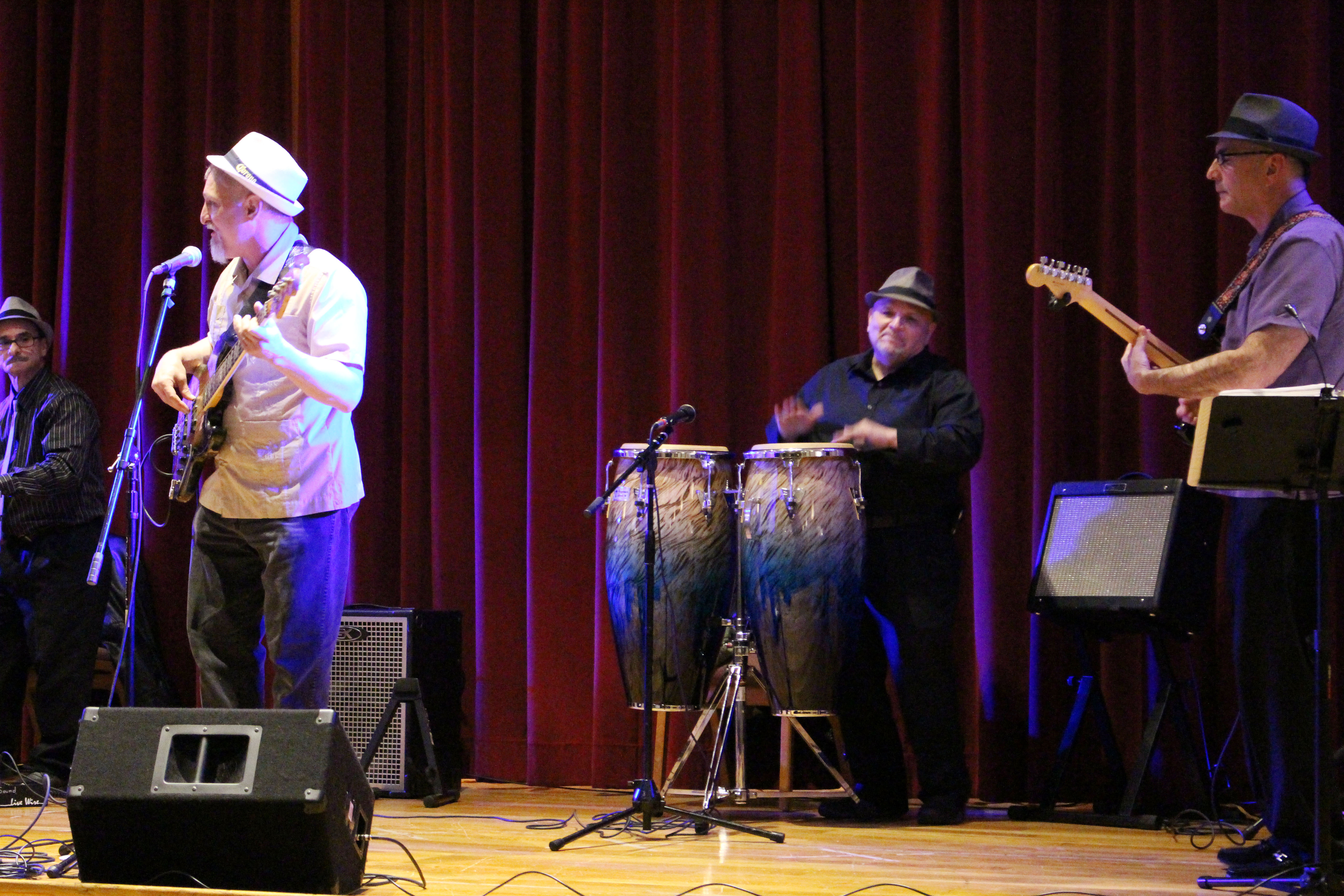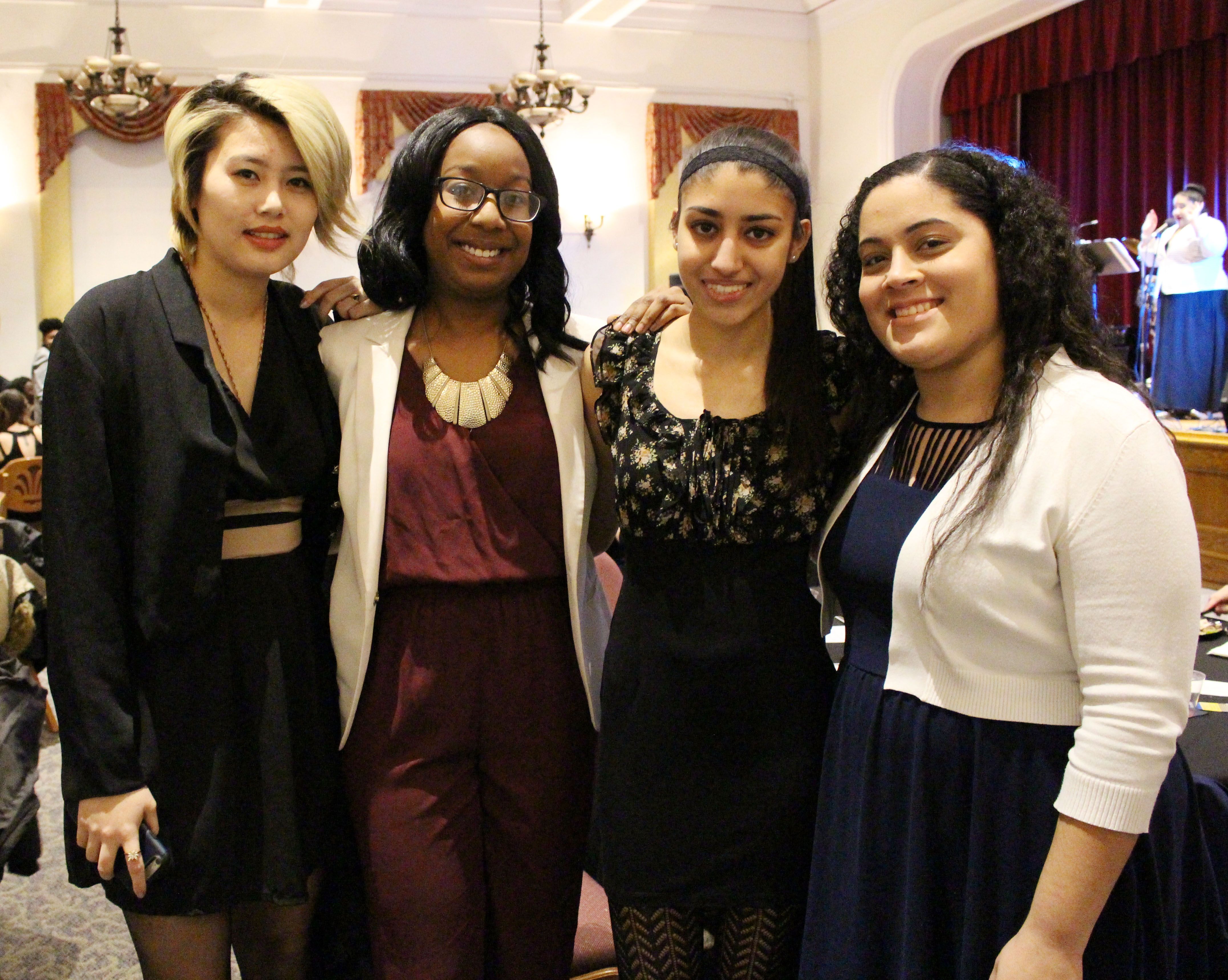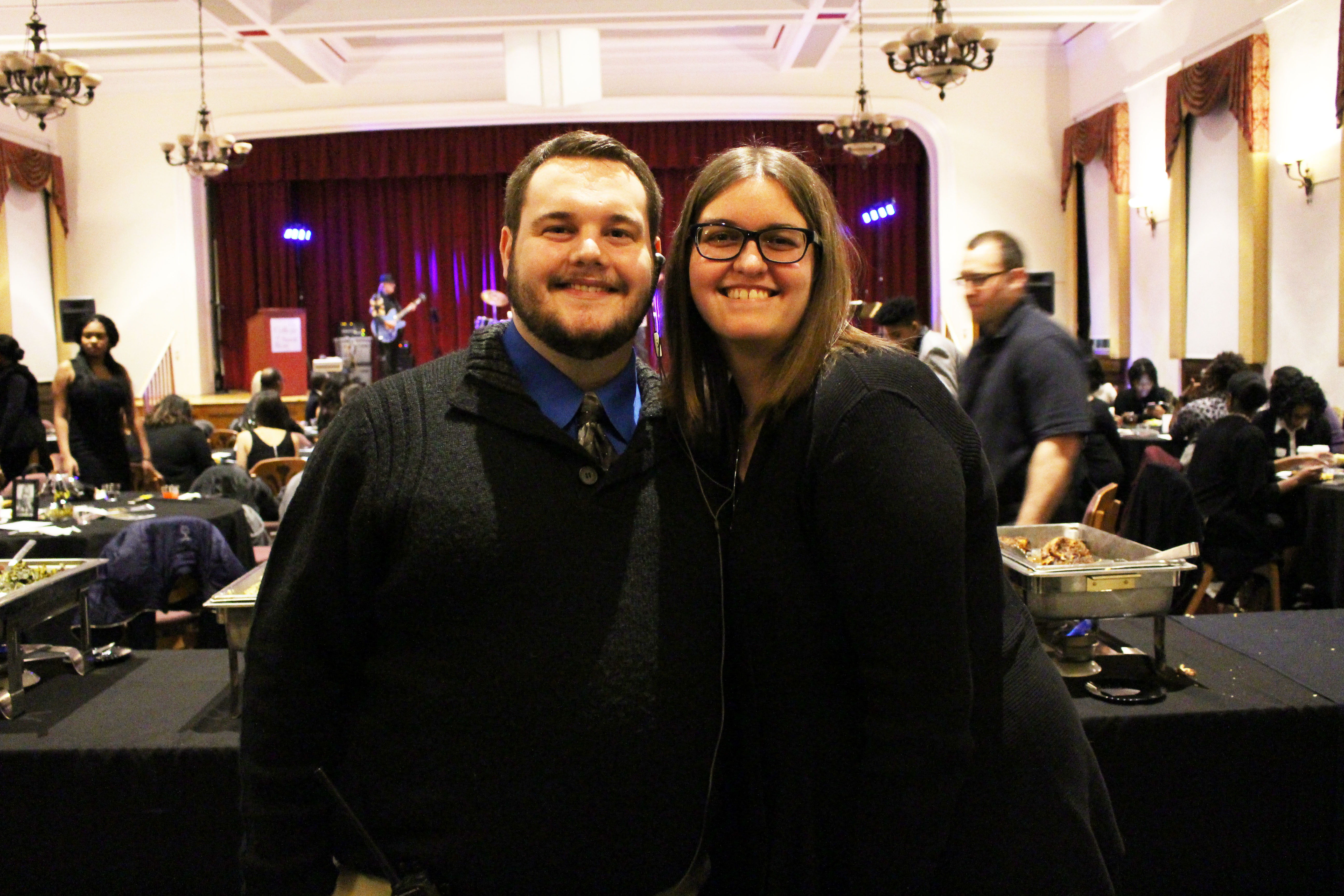By VALERIYA PONOMAROVA
Contributing Writer
“Someone asked me one day, when I was in primary school, what I’d like to be,” Mouzawar Chami said. “I’d like to be a scholar, a big scholar,” he replied.
Later, he realized his dream.
Chami, 48, is a graduate student studying communications at The College of Saint Rose. Originally from Comoros, a group of islands off the eastern coast of Africa with French and Arabic influences, Chami was one of the 2,033 grantees of the 2011 Fulbright Program for Foreign Students sponsored by the U.S. Department of State.
Chami’s first time in America began with improving his English language skills at Arizona State University (ASU). After four months, he was transferred to Arkansas State University (ASTATE) where he continued improving his English for eight months until he was transferred to Saint Rose in May 2012.
“Knowledge is in the books,” Chami said, emphasizing the importance of education. He explained that in the Quran – the Muslim holy book – the first verse is ‘read,’ commanding one ‘to learn.’
“That’s why I’m here,” Chami said. “I’m here to learn; I have to obey this order.”
Colleen Flynn Thapalia, Director of Graduate Admissions and International Recruitment at Saint Rose, teaches Chami in a group communication and leadership course. They met during his admissions process. She felt he had much to say, but probably came from a culture that is reserved.
“I hear from him in his writing every week,” Thapalia, 50, said. “In class, he’s kind of a quiet person, but when I have the class break up into smaller groups to maybe discuss this particular leadership theory … he dives right in.” Chami devotes much of his time to studying.
Studies and Prayers
Comoros’ past as a French colony left behind a French education system that Chami attended for 13 years. In primary school, he attended a mandatory Koranic school in the afternoons, where he learned to read the Quran. In secondary school, Chami learned various subjects, including foreign languages. Chami speaks four of them: Comorian, French, Arabic, and English. The Comorian language is similar to Swahili, which is spoken in countries like Uganda and Kenya, and contains Arabic influence.
In 1990, Chami graduated from secondary school and went to study in France, since Comoros didn’t offer a university at the time.
“The first time I went to France, I was in cultural shock,” Chami stated. He knew the language, but not how to live with strangers. “It was the scariest.”
“In my country, when you are a boy, you are not allowed to go to the kitchen,” Chami explained. “I didn’t know how to prepare a tea.” He quickly learned to cook in a year or two. “It was difficult for me,” he added.
This will probably be different for his children, Chami stated, explaining that he might teach his son to cook. He wonders why Comoros cannot have male chefs like other countries and he smiles, stating how he is only able to prepare coffee in the living room.
Chami achieved two bachelor’s degrees, the first in Arabic studies from the University of Provence Aix-Marseille in 1994 and the second in public administration from the University Paris 12 Val de Marne in 1997.
After Chami’s studies in France, he returned home where, in 1998, he held an internship at the Bank for the Development of Comoros for four months. After this, he taught economics and law at the two-year National School for Administration and Business until 2001.
Scholar’s Mission
Chami was appointed the Director of Public Service in Comoros from 2001 to 2006. He managed about 11,000 people from various public service departments.
“It was difficult, because you work under pressure,” he said. “It was a good experience for me to work with different people of different backgrounds.” Chami received an award of recognition for achievement of the public service’s goals in 2002.
As the director, Chami traveled to countries like Italy and those in Africa, attending events for the public service ministry. After a regime change in 2006, he returned to become an assistant professor at the University of Comoros until his selection for the Fulbright Scholarship.
“I just wanted to recycle,” Chami said. ‘Recycle,’ in the French language, means to progress into the next cycle of knowledge. “You need to learn something new in order to improve your skills.”
Chami picked communications, because it was something he hadn’t studied yet.
“In communications, some skills would be useful for me,” Chami said. He doesn’t plan to be a journalist, but communication studies appeal to him. “Maybe I can teach communication in the University of Comoros,” he added.
Holly McKenna, 50, an instructor at SUNY Albany and a freelance writer, taught Chami’s first course, journalism in history and practice, at Saint Rose. They were both new to this college’s environment.
“At first, he was very quiet and he was trying to figure out what was expected of him,” McKenna said, and noted that she tried to make him feel comfortable in the new community. “I could tell that a lot of the students really liked him.”
Chami seemed understated and soft-spoken while being the most talkative when conversing about his country, McKenna said. “Kind of reminded me of a diplomat.”
Currently, Chami is working on a memoir-type novel about his experiences and a book about reform in the Comorian public service system, concerning its employees and budgeting. He has completed a book about borrowed Arabic words in the Comorian language. Its manuscript is yet to be published.
“His writing is always analytical and thoughtful,” Thapalia said. His writing samples showed her that he is self-contained. “Some students would take any theory and would try to apply it to their own experience … he writes in the context of the theory.”
Scholarly Ambitions
In 1986, Chami and the other members of his village created a non-profit association that helps young students succeed in their studies, engage in sports activities, learn to protect the environment and safeguard the Comorian culture. It is called Twanaya, which means “hope.” Their achievements include building a library in their village, containing various books, computers and television.
“It was a good thing,” Chami said. He was the secretary of Twanaya from 1999 to 2009 – he passed the job on to younger members. He wishes to familiarize himself with their progress once he returns home. “I can be proud of Twanaya.”
Chami’s family lives mostly in Comoros. His father passed away in 1988, so as the eldest of two brothers, Chami is seen as the father of the family, according to him. He also has three sisters. His wife, Warda – Arabic for “flowers” – works and resides in Itsandra with their two-year-old son, Madjuwani – meaning “the land of the sun” – who was born while Chami was in Arkansas.
Chami hopes to achieve his master’s degree early, so that he could return home sooner. He isn’t interested in reapplying for the scholarship once he returns to Comoros, and if he decides to pursue a doctorate degree, he will achieve it through a French university while living in Comoros. He said that he might consider writing his dissertation in administration or Islamic studies.
“There is no retirement for knowledge,” Chami said. He is eager to return to Comoros and share the experiences he’s received. “Every day we learn something new.”

